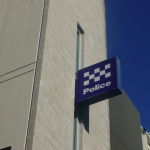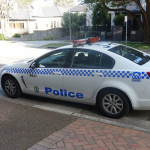Police Accused of Pressuring Alleged Victims to Withdraw Complaints

The Queensland auditor general has accused the state’s police service of unacceptable practices when collating crime statistics and even distorting crime rates by ‘soliciting’ victims to withdraw complaints.
The auditor general’s report, tabled in parliament last week, found that the Queensland Police Service (QPS) is “open to claims of manipulation”, concluding that:
“The Queensland Police Service has an unacceptable amount of crime data
across the state that is incomplete, inaccurate, and wrongly classified.
“Contributing to this are officers’ poor understanding or use of data classification rules, poor guidance, inappropriate data classification practices and inadequate quality assurance controls.
“As a result, reported crime statistics are questionable at best and unreliable at worst, and should be treated with caution.”
Pressuring complainants
The report found that officers on the Gold Coast demonstrated an unhealthy focus on achieving performance targets in high-tourist areas, which led to recorded crime rates being significantly lower than reported rates.
It noted that senior police had set ‘aspirational goals’ to reduce rates, which resulted in improper tactics being employed by subordinates to make it that appear crime was lower than it actually was.
It further found that officers employed a range of tactics to make it appear that complainants had withdrawn their complaints, including sending them letters demanding that they produce a range of materials and/or provide extensive additional information, or have no further action taken on their complaints.
The QPS also applied a “three strikes policy”, whereby complaints would be marked as ‘withdrawn’ if the complainant could not be contacted after three attempts.
The findings follow reports in January of two police crime managers on the Gold Coast having raised concerns that legitimate crime reports were being labelled “unfounded” to keep the offences off the books.
Their allegations were passed onto the auditor-general after their superiors failed to act.
Inappropriate practices and attitudes
Whilst much of the report deals with distorted crime rates in tourist areas such as the Gold Coast, it also makes it clear this is part of a broader cultural problem in the QPS.
“Our analysis of statewide crime statistics indicates that the inappropriate practices and attitudes identified on the Gold Coast regarding changes to crime data are unlikely to be isolated to that district,” the report states.
Flawed data reporting also appears to exist beyond the police service, with the auditor general expressing concerns about information released by Queensland Corrective Services.
Government response
Police minister Mark Ryan says he welcomes the findings, stating:
“We expect the highest standards, the very highest standards from our Queensland police,” he said. “If there are shortcomings in those behaviours in respect of any aspect of their role, then those shortcomings will be investigated and we will hold those officers to the highest standards.”
Opposition police spokesperson, Tim Mander, says the QPS leadership has serious questions to answer.
“Police Minister Mark Ryan needs to come clean and indicate just how bad the crime situation really is,” he said in a statement
Mr Mander also criticised the government of reneging on a promise to implement a system of gathering independent crime statistics, devoid of influence by interested parties. However, attorney-general Yvette D’Ath contended that the government had to wait for the report to be delivered before establishing such a regime.
“Now that we have that review I’ll be able to move very quickly to establish that body … to make sure that the public can have confidence in the statistics,” Ms D’Ath said on Thursday.
Corruption inquiry
The Queensland Crime and Corruption Commission (CCC) will examine the findings of the report, promising to take “whatever action is appropriate.”
However, police commissioner Ian Stewart has already pre-empted the CCC’s findings by stating that no evidence of corruption is contained within the report.
“From their perspective and the internal investigation we did based on a report from two of our own officers was that there is no systemic corrupt behaviour in this regard,” he stated.
Mr Stewart says the QPS has commenced a “detailed and comprehensive audit” of about 60,000 records classified as unfounded or withdrawn. “All of the anomalies identified during that audit have been corrected,” he claimed. Police Minister Mark Ryan says he has requested “regular updates” on that audit.
However, police detective turned criminologist Terry Goldsworthy believes the report contains clear findings of corrupt practices within the QPS. “It’s not just the fact it’s sloppy bookkeeping. What’s seen here suggests there’s been deliberate manipulation. In other words, a process has been undertaken to mislead,” he remarked.







